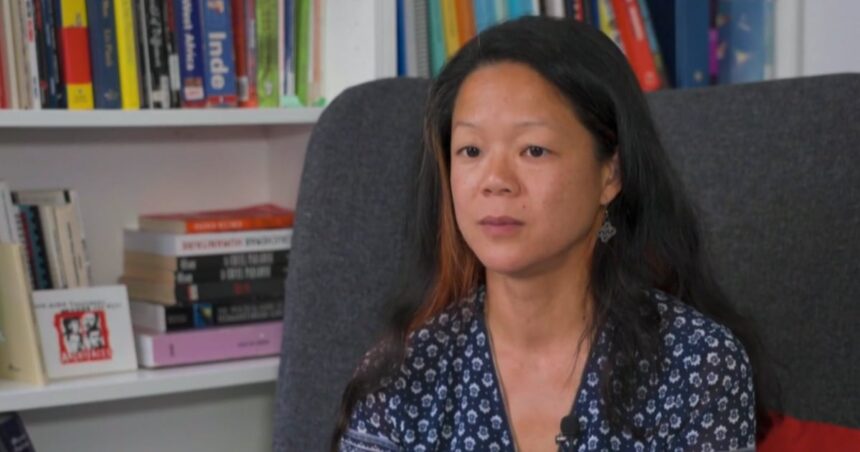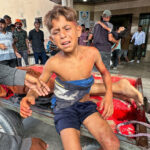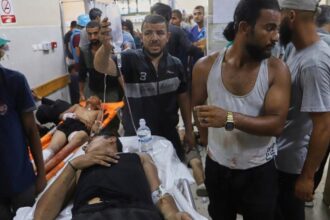The scorching July sun had barely risen over the horizon when Dr. Amira Hassan boarded her flight home to Montreal after six grueling weeks in Gaza. What she witnessed there has left her permanently changed – a healthcare professional confronting the unimaginable amid one of the world’s most devastating humanitarian crises.
“The situation deteriorates daily in ways we couldn’t have anticipated,” Dr. Hassan told CO24 in an exclusive interview at her Montreal home. “Just when you think conditions couldn’t possibly worsen, they do. The resilience of Gaza’s healthcare workers is nothing short of miraculous, but they’re operating on borrowed time.”
Dr. Hassan, a critical care nurse with 15 years of experience in trauma medicine, volunteered through Médecins Sans Frontières (Doctors Without Borders) to provide emergency medical support in Gaza’s collapsing healthcare system. Her deployment coincided with what UN officials have described as “catastrophic” shortages of medical supplies, clean water, and electricity.
“We performed surgeries by mobile phone flashlight,” she explained, her voice steady but her hands trembling slightly. “Children with treatable injuries died because we lacked basic antibiotics. In any Canadian hospital, these would be routine cases. In Gaza, they become death sentences.”
According to the latest WHO assessment, nearly 70% of Gaza’s medical facilities have been rendered non-operational since October, creating an unprecedented healthcare vacuum for over 2 million civilians. The remaining hospitals function at triple capacity, with patients often treated on floors and in corridors.
“Medical neutrality has been shattered,” Dr. Hassan noted. “The concept of hospitals as protected spaces no longer exists. We treated patients while the buildings shook from nearby explosions. Staff wouldn’t leave patients behind, even when evacuations were ordered.”
The psychological impact on healthcare providers has been particularly severe. Dr. Hassan described how local Palestinian medical staff continue working despite having lost family members, homes, and colleagues. Many haven’t received salaries in months but remain committed to their patients.
“I met a pediatrician who lost his wife and three children yet was back at the hospital within days,” she said. “When I asked how he managed, he simply replied, ‘Others need me more than I need to grieve.’ That level of dedication is humbling beyond words.”
Canadian aid organizations have increased their presence in Gaza, but humanitarian workers describe a system overwhelmed by need. The UN estimates that approximately 90% of Gaza’s population has been internally displaced, many multiple times, creating cascading health crises beyond direct war injuries.
“The secondary health impacts are catastrophic,” Dr. Hassan explained. “Chronic conditions go untreated. Pregnant women can’t access prenatal care. Vaccination programs have collapsed. We’re seeing preventable diseases spreading rapidly through overcrowded shelters.”
Now back in Canada, Dr. Hassan plans to advocate for increased Canadian humanitarian support while preparing for a potential return to Gaza later this year. She joins a growing chorus of healthcare professionals speaking out about the medical catastrophe unfolding in the region.
“As healthcare providers, we have an ethical obligation to speak about what we’ve witnessed,” she emphasized. “This isn’t about politics; it’s about fundamental human dignity and the right to medical care.”
Dr. Hassan’s testimony adds to mounting documentation by international medical organizations regarding the extraordinary challenges facing Gaza’s healthcare system. Médecins Sans Frontières recently described the situation as “beyond catastrophic,” while the International Committee of the Red Cross has repeatedly called for greater protection of medical facilities.
“Canadians need to understand that what’s happening violates every principle of medical ethics we hold dear,” Dr. Hassan concluded. “When we remain silent about these violations, we become complicit in normalizing them. As both healthcare professionals and citizens of the world, what responsibility do we bear when medical care becomes a casualty of conflict?”






















